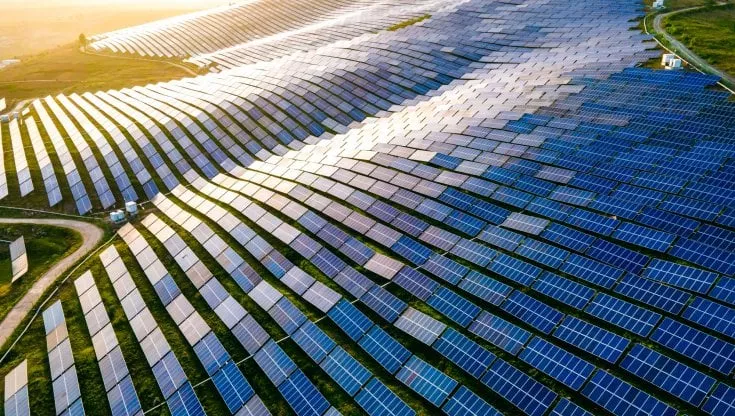The leading Asian country in terms of number of studies and projects. According to the analysis of the scientific editor Elsevier on the state of academic research in this sector, Europe lacks a common policy while Italy is penalized by the few funds available.
The future strategies of a country can be identified from the priority of academic research. And from the one on energy security we can understand how the energy transition will take place in the next few years in the most important areas of the planet and who will lead it, namely China, with the United States and Europe following but far behind. This emerges from the analysis of Elsevier, one of the most important scientific publishers in the world, which analyzed the world output of academic research on hydrogen, renewable energy storage and carbon capture, from 2017 to 2021.
Technologies Have Made Great Strides
In recent years, in terms of renewable energy, technologies have made great strides and costs have decreased, but there is still a long way to go to be able to do without fossil fuels. Starting with energy storage and the search for alternative sources that currently see hydrogen as the only candidate. Added to this is the issue of carbon dioxide capture and storage, which is urgently needed to combat global warming and contribute to the achievement of net zero emissions before achieving independence from non-renewable sources. “These are the three most relevant technologies in the energy field today – explains Claudio Colaiacomo, vice president for academic relations at Elsevier – and choosing to enhance one line of research rather than another has an important impact on our future”.
Storage and hydrogen, he continues, “offer the hope of meeting future needs, together with energy independence and power. Carbon offsetting responds to the urgency of preserving the planet for future generations.” Thanks to Elsevier’s research, it is possible to understand how different countries adopt a different approach in the energy field. And how, as far as independence from fossil fuels is concerned, China is proving to be much more active than all the other countries while the distances with Europe and the United States on carbon capture are closing. With Italy which, Colaiacomo further points out, “in its research on these new areas of renewable energy suffers from the well-known problems that characterize research in our country in general: few funds and limited systemic thinking capable of connecting research and industrial development” .
In detail, as regards the storage of renewable energies, the scientific production of the last five years sees China not only excelling in the ranking with over 35,000 scientific publications, but it also distances its closest competitor, the United States, by three times with ” only” 11,000 publications on the subject. “If the strong boost in terms of research were to directly correspond to an acceleration in China in terms of storage of renewables – explains Colaiacomo – this could have effects from a geopolitical point of view. Let’s not forget that China represents an alternative market for Russia and that if China were to truly emancipate itself from Russian imports, this would have a heavy repercussion”.
Place of UK
Among the European countries in the standings, the United Kingdom is in first place, followed by Germany and Italy (8th in the world), ahead of France (5th in Europe and 13th in the world) which, however, is also focusing on other fronts such as nuclear. If there seems to be no competition on publications, the gap between China and Europe is even more important on patents, 62,000 against 16,700.
As far as hydrogen is concerned, China is once again disconnecting everyone. In fact, in the five-year period of the analysis, it published 6,000 research projects against 2,000 in the United States. Here Italy is in 12th place with just 565 publications also surpassed by Russia which, with 600, is in 10th place suggesting, Elsevier continues, “a positioning of the country on the issue of long-term renewables, particularly interesting in this historic moment”.
However, this trend in academic research is less evident on the issue of carbon capture, where China’s gap from other countries is less. A research area that in Europe is considered a high priority starting from Great Britain, Germany or Italy and where the collaboration between research institutions and industries is higher than in other sectors. In Italy, for example, compared to a 6% collaboration rate on hydrogen and storage, it reaches 10% in carbon capture.
Finally, by analyzing the RAI (relative activity index), i.e. the share of publications on a certain topic of a country compared to the global share on the same, it is possible to understand the different research priorities of each organization or country. In terms of energy security, we can see that for its future, China is focusing heavily on storage and hydrogen but shows less interest in carbon capture.
However, by contextualizing the data of scientific production to the different dimensions of the countries, we can obtain new interesting information. If, for example, in energy storage, China really proves to be the absolute leader, in hydrogen an index similar to that of South Korea emerges. In carbon capture, however, the podium is shared by the United Kingdom and South Korea. The issue is also at the top of the priorities of Germany, Spain, Italy, France and the United States while it is the last priority for Russia and China. All this explains how research “can provide important information for reading the present and anticipating the future”, concludes Colaiacomo.
This article is originally published on repubblica.it
Also Read:


